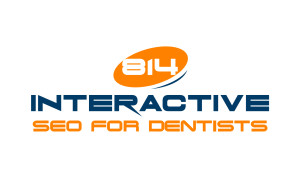Search engine optimization is confusing.
We understand that.
There are so many different facets and there are lots of different voices online telling you want to do and what not to do.
Unless you’ve worked in the SEO industry for many years, it might be difficult to tell which techniques are legitimate and which techniques are the online equivalent of buying a Rolex out of someone’s coat on the street.
For businesses that are entirely online, partially online, or only use their website to drive foot traffic to their brick and mortar store, good standing with Google is imperative.
If you are using any of the following ten techniques, you’re probably being penalized by Google and not seeing the online traffic you need to be successful.
1. Not enough content.
Every page of your website has a little bit of content on it, so you’re good, right?
Unfortunately, not having enough content is akin to having no content at all, and if you are one of those websites that has no content at all, you need to get some ASAP.
Content is the foundation of your search engine ranking, so if you don’t have any content, how are you going to get ranked?
Content Marketing can help!
2. Creating a page for each search term, and creating hundreds of pages.
While it’s not a bad idea to create a separate pages for relevant keywords, you don’t need a page for “Philadelphia dentist,” and “dentist Philadelphia,” just for an example.
If you give a keyword its own page, there should be a very real reason behind it—and that reason shouldn’t just be expanding the size and content load of your website.
3. Copying your competitors SEO tactics.
There’s nothing inherently wrong with doing what your competitors are doing, except that they’ve been doing it longer, and probably to greater effect.
If you see that a competitor’s ranking is very high, “only” doing what they’re doing will not only always put you second to that competitor.
Simply put, you can never know every facet of their SEO campaign, telling your SEO expert to “just do what my competitors are doing,” is unlikely to even get you anywhere near their ranking (especially if they’re using bad practices).
It’s best to build your own links “and” copy what they are doing, as long as you are copying solid and clean SEO practices.
4. Building one-dimensional links.
Again, there’s nothing inherently wrong with guest blogging.
But there is something wrong with it being your only avenue for link-building.
Why?
Because it doesn’t offer your SEO anything fresh, new, or diversified, and Google loves fresh, new, and diversified.
Over time, if the algorithm sees that guest blogging is the only way you are building links, it will begin to give those links less and less weight, even if they are completely legitimate and high-quality links.
Mix it up!
5. Spending time inserting keywords into every metatag.
Newsflash: Google hasn’t used meta-tags as a ranking factor in more than a decade.
Somehow, people are still obsessing about how many keywords are in their metadata and whether or not the keywords are in the right position, and if they are even using the right keywords in those areas.
The fact is that web crawler algorithms use visible text almost exclusively.
It’s not scanning your HTML to find keywords that you’ve hidden in your metatags.
Of course, having a metatag is still important, since it’s what shows up under your link in search results, but it’s no longer that important for SEO.
6. Buying links.
This still happens because even though Google will flag your website if they find out you’ve done this, in the short term, the purchased links actually do improve rankings.
The problem?
Not only is it considered a black-hat tactic, it’s just reeks of a scam.
Search engines like Google are dedicated to tracking purchased links down and flagging the websites associated with them, so it’s really only a matter of time until that small bump in rankings becomes a huge red flag.
7. Swapping links.
Here’s one that you don’t necessarily have to stop doing, but that you should stop doing in an attempt to improve your search engine ranking.
Swapping links doesn’t do much for search engine rankings.
Google’s algorithm is looking for links that look like endorsements, and it is pretty good at telling which links are legitimate endorsements, and which websites have swapped links for the appearance of an endorsement.
Of course, if you want to swap links with another website because you think that website’s information will be relevant for your readers, by all means, do it.
8. Not having a responsively designed website.
Whether you have a website developed specifically for mobile devices or whether you find a developer who uses responsive design, if you do not yet have a mobile website, you are missing out on a huge chunk of your traffic.
Not only does Google favor websites that have mobile capabilities in mobile search, they will sometimes even be given preferential treatment in desktop and laptop results.
Why?
Because responsive design means a better user experience and Google wants to present its users with websites that those users actually want to use.
Google has come out and said that effective April 21st 2015, mobile is a must!!
9. Link Cloaking.
While you might have a very legitimate reason for doing this (though, really, what would it be?), it smells like a scam, and if a search engine’s algorithm sense that a website is using cloaking, there’s a good chance that it will ban that website, no matter how legitimate its reasons are.
10. Duplicating content.
Whether stealing content from another website or just using identical content on more than one page, this just isn’t a good idea.
Ever.
If the pages have different URLs, do not use the same content one them.
And absolutely do not just lift content from a similar page.
Search engines only want to rank content once, and if they sense duplicate content, they just won’t rank it, instead of figuring out which piece of content it should rank.
It’s 2015—time to stop using any or all of these techniques.
They’re a waste of your time, and could be costing you customers!
STILL HAVE QUESTIONS ABOUT SEARCH ENGINE OPTIMIZATION?
Contact 814 Interactive now for your free consultation! We provide a quick and actionable review of your digital marketing and provide you with a strategic plan to bring you MORE TRAFFIC, MORE CLIENTS, & MORE PROFIT!!





